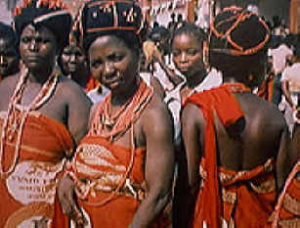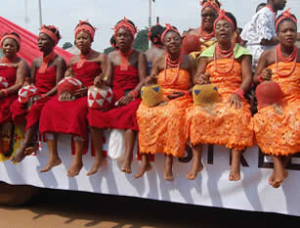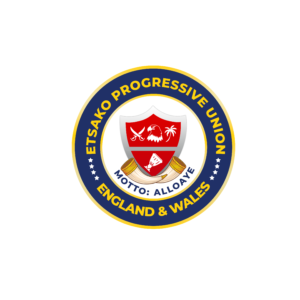History.
HISTORY OF ETSAKO PEOPLE
Introduction:
The people of Etsako are part of the larger segment of a race called the Afemai’s. The Afemai nationality comprised of the Akoko Edo’s, the Owan’s and the Etsako people. These people occupies the northern part of Edo State, hence they are commonly called “Edo North”. They also used to be called the “KUKURUKU’S”, a name derive from the Kukuruku Hills which served as shield for the people during the inter-tribal wars and the Nupe invasion during the early 20th Century. The Afemai people are Edo with a common ancestral descent from Benin. The Etsako people live north of the Equator from the Benin Kingdom.
Brief History:
The people of Etsako were said to have moved out of Benin in the 15th Century A.D. Their departure from Benin was said to have been precipitated by the hash and draconian rule of Oba of Benin at the time. The people who are skilled in various arts and craft, occupies strategic places/position in the Benin society, depict their trades. For instance, Igwu Street while is home to Bronze Casters was said to be home to Agbede and Uneme people of Etsako. This is perhaps why till date; the people still practice the arts of bronze casting and other related occupations. In the Etsako language, they are called “E ne lue Osama”.
The Etsako people angered by the conduct of reigning Oba, first encamped at the Obadan/Okphiaghamen Community. The settlement was about 30 miles away from Benin City. The People, sensing that the Oba would give them a chase, with a view of bringing them back to Benin, left this first encampment after 13 years. They went further into the hinterland and settled at Aviele which is today Etsako West local government area.
Up until this point, the Etsako people are with their kith and kin from Akoko Edo and Owan. It was at the second encampment that what can be likened to the biblical tower of Babel happened. And the community broke up with various segments of it migrating in different directions fro the Aviele settlement. However, the biggest group of this community remained together and this is the Etsako nation today.
The Etsako people in terms of local government administration and governance, used to be in one local District Administration which was known as Etsako Division. This division has however metamorphosed into three district local government administrative areas viz; Etsako East with Headquarter at Agenebode, Etsako West with Headquarter at Auchi and Etsako Central with Headquarter at Fugar.
Although the Etsako nation have been divided into three district local government councils, they still see themselves as one-owing perhaps, to a common ancestry.
There are fourteen autonomous clans in Etsako.
They are:
- Weppa
- Wanno
- Uzairue
- Auchi
- Okpella
- Okpekpe
- Three Ibies
- Avianwu
- South Uneme
- Ekperi
- Aviele
- Anwain
- South Ibie
- Uzanu
These various clans, in more sense than one are consanguineous. In spite of the artificial boundaries created by successive government administration for convenience, the people have largely remained one and have related across boundaries.
The name Etsako is part of the history of the people. Although commonly adapted today as the nation’s name, it as best descriptive of a part of the tradition and culture of the people. The Etsako people take the business of marriage very seriously and it was from that the name evolved.
Etsako literally speaking means “those who chopped off their teeth”. “Ako” means teeth and “Tse” means to split. In pristine Etsako tradition, men who married young women particularly those who were never married before, usually leave them with a mark to identify them. They chopped off part of the incisor (front teeth) with either a knife or a chisel. And it was usually painful to the women. Although the pain was excruciating, the women loved it, because it showed that they were virgins and never before married. This practice which was carried on for a very long time became associated with this people and with time, became also known as their name. Thus, Etsako as earlier mentioned is those who split or chop off the teeth of others. This long history has in contemplary society been abandoned but not the name.


Language:
The people of Etsako speak a common language called YEKHEE. This is a dialect of the language block called Edoid Language. Although this is the situation, there are dialectical variants of Yekhee spoken by pockets of Etsako people. But the basic point that must be noted is that there is a general understanding of issues in the language bloc by all Etsako people. However, for purpose of distinction, it is important to note that there is a greater commodity in dialect between the Okpellas and the Ibie’s (Okpekpe and the Three Ibies). But this does not preclude them from the larger Etsako language or dialect. It is also to be noted that because of the proximity to some other cultures, sometimes, the indigenous dialect tends to get corrupted by the influence of neighbouring values and morals.
Occupation:
The Etsako people are predominantly farmers. Thus perhaps account for over sixty percent of the adult populace. However, many others are fishermen, Blacksmiths, Itinerant traders, Hunters and Herdsmen. The Etsako people are very hard working. This perhaps derives from the belief that indolent people must not co-habit in the same space as hard working, honest men. However, due to missionary influences in this area, particularly around the mid century, many young men had started abandoning the farms to embrace the new religions which open them to teaching jobs and other less “white collar jobs”.
Religion:
The Etsako people were originally practitioners of the African Traditional Religion. However, with advent of Christianity and Islam, many got converted to those religions. Etsako people are predominantly Christians today, perhaps due to largely the arrival of the early missionaries at the Waterside in Agenebode. However, high concentrations of Muslims can be found around Auchi, Agbede and perhaps, the Okpella axis.
Social Amenities:
The Three Etsako local government headquarters are classified as urban development areas. They are provided with Government Secondary Schools, Hospitals, High Courts of Justice and a few privately owned industries. At Auchi, there is a tertiary institution; the Federal Polytechnic and the School of Agriculture and Aquaculture located at Agenebode and the University of Edo State Uzairue located at Iyamo. The road network between the headquarters is good and there is electricity generated from the national grid. Although pipe borne water is also provided, this is inadequate. Therefore, supply is augmented by private borehole owners across the communities. A few industries like the cement company, Leventis Farms, Limestone and Query Firms, Clay and Pottery industries have begun to spring up.
Executive Members
Members
Patrons
Trustees
